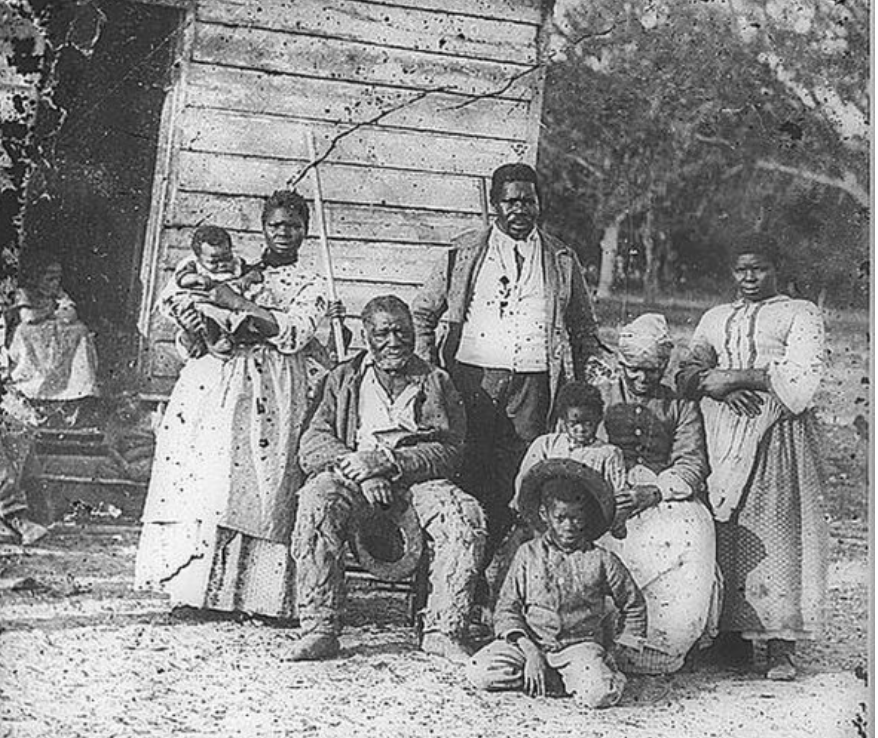The History of African American Vernacular English
Family on Smith’s Plantation, Beaufort, South Carolina, circa 1862. Image courtesy of the Library of Congress and learnnc.org.
March 13, 2023
Many phrases and words that are used today, concluded to be “internet slang”, have a richer history than is known. Black individuals all over the county have spoken African American Vernacular English (AAVE) since the 17th century. Countless people today still do not understand the importance of recognizing and respecting AAVE.
What is AAVE?
AAVE is a dialect mainly used by black individuals in English-speaking countries. It is characterized by grammatical traits that differ from standardized English. Such characteristics include double negatives, a different sentence structure and a separate vocabulary. AAVE even includes further nuances that standard English lacks. Popular phrases such as “give props” and “killing it” are rooted in this language.
The Origins of AAVE
Though there is a debate as to why this language developed, historians can agree that AAVE emerged on southern plantations. Some believe the language was developed for African slaves to better communicate with indentured servants, while others think it came from a combination of African languages and English spoken by slaves. Due to its southern heritage, African American Vernacular English frequently uses phrases and vocabulary that are unique to southern states. During the Great Migration (a period in which Black Americans fled to the north to escape Jim Crow laws and racist groups, such as the KKK), the vernacular spread throughout America, where it adopted distinctive dialects based on the region.
The Importance of Respecting AAVE
Unfortunately, American society labels African American vernacular as lazy, uneducated and less sophisticated than the standardized English that is commonly spoken by the white population. AAVE is often stigmatized due to deep-rooted racism and classism. Ironically, AAVE shares many grammatical structures with languages such as Ancient Greek, Latin, French and Italian (as described in Black English Matters), which are commonly viewed as intellectual and scholarly.
In A Brief History of AAVE, Oakland School District’s policy battles this linguistic racism; “The systematic and expressive nature of the grammar and pronunciation patterns of African American vernacular has been established by numerous scientific studies over the past thirty years… the Oakland School Board’s decision to recognize the vernacular of African American students in teaching them Standard English is linguistically and pedagogically sound”.
The use of AAVE in social media has erased the true history behind it. AAVE has been watered down to “Gen Z slang”. Most black individuals believe that using a term, such as slang, to describe AAVE undermines African American history and allows white people to claim black traditions.
































